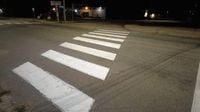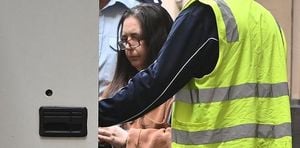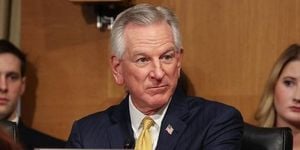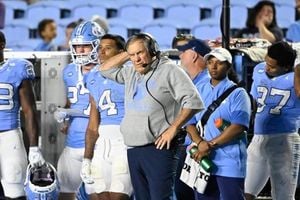New London, a city often associated with its picturesque New England charm, found itself at the center of two distinct but telling stories this week—one about the everyday safety of its youngest citizens and another about a dramatic, if fortunately harmless, traffic incident. Both unfolded on September 15, 2025, offering a glimpse into the city’s ongoing challenges and the resilience of its community.
In a move that brought relief to many parents and city officials, New London’s city council voted to restore funding for the school crossing guard program, reversing a controversial cut made earlier in the year by the Board of Education. The decision came after months of debate and concern about student safety, following the Board’s May 2025 announcement that it would eliminate six crossing guard positions and two nurses serving private schools. This was, according to The Day, a response to the city’s approval of a flat-funded $47.4 million school budget for the 2025-26 academic year.
Board of Education President Elaine Maynard-Adams explained the difficult choices behind the decision. "Flat funding from the city required us to make very difficult decisions. Our unanimous concern was to keep teachers. This was a tough decision, but we believe the city has to accept its responsibility," she said in a statement quoted by The Day. The cuts, which saved just under $60,000, left only one crossing guard on duty—at a location that, ironically, didn’t even have a stop sign.
Mayor Michael Passero, however, was openly critical of the Board’s move. He described the decision as more political than practical, telling The Day, "They went for the most politically explosive cuts that they could come up with. I think it was vindictive and petty." Passero argued that the school system’s $84 million budget could have easily absorbed the $64,000 needed to keep the crossing guards. "This isn’t a money issue. The city issue is approximately $50 million. We can’t do it often, but finding $64,000 is…it’s possible, and we’ve done it. The school system didn’t…they didn’t need to cut $64,000 either out of an $80 million budget. This is not a budget issue," he said.
With the start of the new school year, anxiety grew among parents and community members over the safety of children crossing busy intersections without adult supervision. The city council’s decision to allocate $64,000 from a contingency fund for five part-time guards came as a welcome development. Mayor Passero, ahead of Monday’s city council meeting, assured residents, "There has been no incidents, I understand it’ll be ready to restart tomorrow." He added, "We have some long-serving, very dedicated folks that have maintained the intersections that we cover, so I think everybody’s gonna be much more comfortable to put those folks back to work and have them out there taking care of our kids."
Despite the immediate fix, Passero acknowledged that the city’s ability to manage the program long-term was limited. "The city lacks personnel to manage the crossing guard program long-term," he said, noting that the Board of Education would likely resume oversight in the future. The mayor also didn’t shy away from discussing deeper structural issues facing New London, such as state tax policies and local poverty. "The issue really comes down to our tax base. The state has left us without the resources we need. They’ve taken half of our property off the tax rolls. 60% of our families are the working poor, Alice households, they work multiple jobs to get by, they live paycheck to paycheck," Passero told The Day. "It’s a pretty desperate situation. We cannot raise property taxes. Property taxes are regressive, and they hurt those families the most."
For now, the city will oversee the crossing guard program, but both city and school officials recognize the need for a more sustainable, collaborative approach. Passero, looking ahead, said, "I do hope that there’s new leadership on the Board of Ed. I do hope that next year, the Board of Ed will work with the city, and the city council, and we can work together on a sustainable school budget." The mayor’s comments reflect a broader hope for improved cooperation between city leaders and the Board of Education, aiming to prevent future standoffs that put essential student services at risk.
While city officials were busy addressing the fallout from budgetary wrangling, New London was also the scene of a dramatic but non-injurious truck accident that briefly disrupted traffic on one of the region’s main arteries. According to WMUR, on the morning of September 15, 2025, a truck rolled over near mile marker 32 on northbound Interstate 89, just past Exit 11. The crash caused a significant slowdown for commuters, but, remarkably, no injuries were reported.
New London firefighters responded quickly, clearing the scene after a few hours. Interstate 89 was reopened once the area was deemed safe. The incident, while disruptive, was resolved efficiently thanks to the prompt actions of emergency responders. The absence of injuries was a relief to all involved, and the event served as a reminder of the unpredictable challenges that can arise on the city’s roads.
These two stories—one about restoring a vital public safety measure for children, the other about averting tragedy on the highway—highlight the complexities of managing a small city’s resources and responsibilities. They also underscore the importance of dedicated public servants, from crossing guards to firefighters, who keep the community safe in ways both visible and behind the scenes.
In the end, New London’s week was marked by both tension and resolution. The city council’s action to restore the crossing guard program was, at least for now, a victory for those who prioritize student safety. Meanwhile, the seamless handling of the truck rollover on I-89 demonstrated the city’s capacity to respond to emergencies with competence and care. As New London moves forward, the hope is that continued collaboration—and a focus on the well-being of all its residents—will help the city weather whatever comes next.




